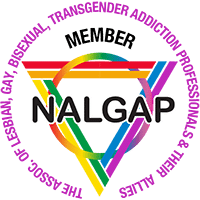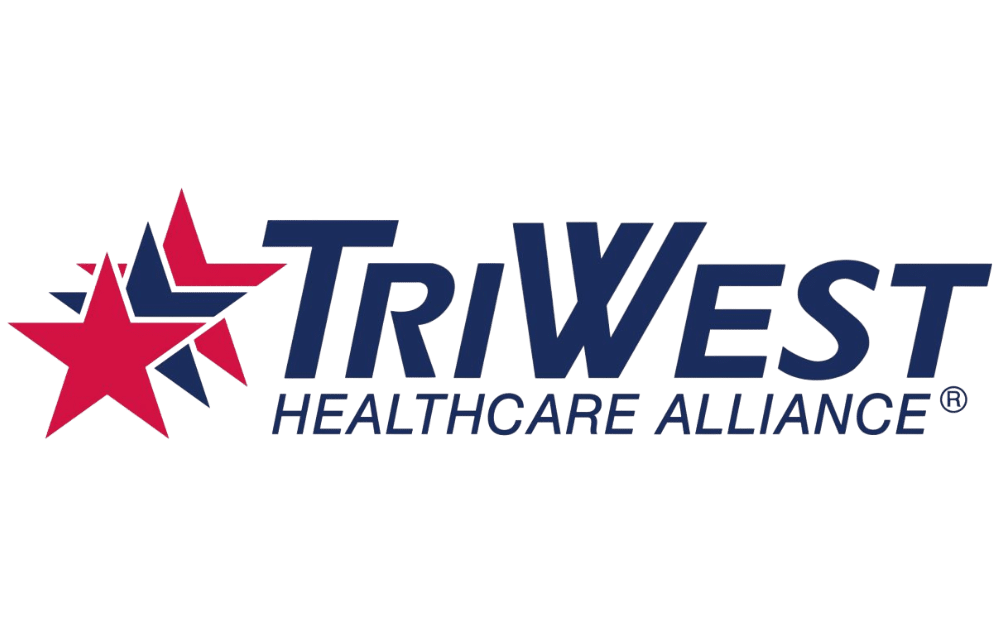Denver recovery center
Customized Treatment Approach
At Mile High Recovery Center, the road to recovery is as unique as the individuals who walk it. They believe that every person’s journey through addiction is influenced by distinct factors, which demand personalized treatment plans. This philosophy is the cornerstone of their comprehensive approach, integrating medical management with holistic therapies to ensure a balanced recovery.
The center leverages a spectrum of evidence-based clinical therapies, such as Cognitive Behavioral Therapy (CBT) and Dialectical Behavior Therapy (DBT), alongside experiential treatments like adventure therapy. A registered clinician from the center once shared, “We tailor every aspect of care to align with our clients’ needs and strengths, fostering an environment where recovery isn’t just possible–it’s personal.”
Holistic Perspective on Recovery
In addition to traditional therapies, Mile High Recovery Center offers numerous holistic options, embodying a mind, body, and soul approach. Their integration of art and music activities, equine-assisted therapy, and nutritional education highlights the center’s commitment to healing on all levels. This approach helps clients reconnect with themselves and find healthier outlets for expression.
One client recounted their experience with the holistic therapies, saying, “Reconnecting with nature through outdoor activities was transformative. It allowed me to heal in ways I hadn’t anticipated, proving that recovery can be as much about self-discovery as it is about abstaining from substances.”
Comprehensive Treatment Options
Mile High Recovery Center offers a continuum of care that spans from short-term residential programs to intensive outpatient services, catering to diverse recovery needs. They provide a multitude of treatment settings, allowing clients to transition seamlessly between care levels as they progress on their recovery journey.
To accommodate various addiction severities and personal preferences, the center also integrates partial hospitalization (PHP) and medication-assisted treatment, including Suboxone and Vivitrol. This full-service model ensures that clients receive supportive care at every stage, enhancing treatment effectiveness and long-term success.
Dual Diagnosis Expertise
Addressing co-occurring disorders is a critical component of Mile High Recovery Center’s treatment philosophy. Their dual diagnosis services are designed to tackle both addiction and accompanying mental health conditions such as anxiety, PTSD, and bipolar disorder. This dual focus is crucial for ensuring complete healing, as untreated mental health issues often undermine recovery efforts.
A clinician specializing in dual diagnoses at the center noted, “By simultaneously addressing mental health and substance use disorders, we empower our clients to build a solid foundation for recovery that encompasses all aspects of their well-being.”
Integrated Support Systems
The center’s robust support systems extend beyond immediate treatment to include long-term recovery strategies. Their housing-to-treatment pipeline ensures a seamless transition for individuals entering and leaving treatment, while their coordinated sober living arrangements provide a stable environment to reinforce recovery skills.
A dedicated alumni community offers ongoing support, enabling former clients to share experiences and offer encouragement, thereby strengthening their own recovery and that of others. This network embodies the center’s ethos that recovery is a journey best traveled together.
Dedicated Professional Team
Mile High Recovery Center prides itself on its highly qualified and compassionate staff, many of whom have personal recovery experience. This unique perspective allows them to connect authentically with clients, offering empathy and insight drawn from their own journeys through recovery.
As one staff member shared, “Our lived experiences allow us to relate to challenges our clients face, fostering trust and understanding that can be pivotal in their recovery journey.”
Outreach and Community Engagement
Situated in the vibrant Denver City Center, Mile High Recovery Center emphasizes community-based recovery, participating actively in local initiatives. Their urban location supports access to both therapeutic and recreational activities, enhancing community integration for clients in recovery.
The center collaborates with various local healthcare providers and insurers, streamlining transitions of care and supporting individuals’ reintegration into the broader community. This network of relationships ensures clients have access to a range of supportive services necessary for sustaining long-term recovery.
Insurance and Accreditation
Mile High Recovery Center is committed to making treatment accessible, working with major insurance carriers like Aetna, Cigna, and Blue Cross Blue Shield. They facilitate insurance verification and accept in-network reimbursement, easing the financial burdens often associated with seeking treatment.
The center’s accreditation from esteemed bodies such as the Joint Commission and LegitScript underscores their commitment to maintaining the highest standards of care. These affiliations reflect Mile High’s dedication to clinical excellence and ethical practice in addiction treatment.
Unique Treatment Facilities
The center’s facilities offer a unique blend of comfort and functionality, tailored to enhance the therapeutic experience. From modern residential settings to versatile outpatient care facilities, their spaces are designed to support various stages of recovery in a comfortable and supportive environment.
Patients benefit from state-of-the-art amenities and a serene atmosphere that promotes healing and introspection, making Mile High a respected choice for those seeking comprehensive addiction treatment in a supportive setting.
Embracing Diversity in Treatment
Mile High Recovery Center recognizes the diverse backgrounds of its clients, including those from the LGBTQ community, military beneficiaries through Tricare, and adolescents. This inclusivity underpins their approach, ensuring that all clients receive respectful and culturally responsive care.
The center’s commitment to diversity extends to its staff, who bring varied experiences and perspectives, enriching the therapeutic environment and fostering a culture of inclusivity and understanding.
How does Mile High Recovery Center’s customized treatment approach enhance recovery outcomes?
Mile High’s customized treatment approach is all about tailoring the recovery plan to fit the unique needs of each client. By integrating a personalized mix of evidence-based therapies like Cognitive Behavioral Therapy and holistic methods such as equine-assisted therapy, they address both the physical and emotional aspects of addiction. This tailored plan allows clients to engage more deeply and effectively in their recovery process, as they are met where they are. For instance, someone with a passion for art may find significant healing through the center’s art activities, something which standard treatment might overlook. This approach recognizes the individuality of each journey, enhancing engagement and long-term success.
What role does the holistic perspective play in Mile High Recovery Center’s treatment process?
The holistic perspective at Mile High is pivotal because it acknowledges that recovery isn’t just about abstaining from substances. It’s about healing the mind, body, and soul. Clients are provided with various holistic therapies such as nutritional education and adventure therapy, which reconnect them with their inner selves. I remember a client who shared how transformative outdoor activities were–it was less about the activities themselves and more about rediscovering joy and balance in life. This holistic approach encourages clients not only to recover but to reinvent themselves in a healthier light.
How do comprehensive treatment options at Mile High ensure effective recovery?
Mile High offers a full continuum of care, from residential treatment to outpatient services, ensuring clients transition smoothly between the levels of care they need as they progress. This spectrum includes partial hospitalization and medication-assisted treatment, meeting the demands of various addiction severities. By providing flexible treatment settings, they accommodate personal preferences and recovery needs, thereby increasing the likelihood of successful outcomes. For example, a client might start with intensive residential treatment and gradually move to outpatient care as they stabilize their recovery foundation.
Why is dual diagnosis expertise important in addiction treatment at Mile High Recovery Center?
Dual diagnosis expertise is critical because many individuals dealing with addiction also have co-occurring mental health conditions like anxiety or PTSD. At Mile High, they understand that these mental health issues often exacerbate substance use disorders. By addressing both simultaneously, treatment becomes comprehensive, reducing the risk of relapse. I recall a clinician explaining how treating a client’s underlying PTSD helped alleviate their substance use struggles, ultimately leading to a more stable recovery. This comprehensive approach allows clients to heal more wholly.
How do integrated support systems at Mile High Recovery Center facilitate long-term recovery?
The integrated support systems at Mile High are designed to provide a stable foundation during and after treatment. Their housing-to-treatment pipeline offers continuity of care, while their alumni network provides ongoing support. I’ve seen how alumni gatherings create a vibrant community, where former clients share experiences and support each other’s recovery journeys. This interconnectedness acts as a safety net, ensuring that clients feel supported long after they leave the structured environment of the center. Feeling part of such a community can be a game-changer in maintaining sobriety.
What makes the professional team at Mile High Recovery Center uniquely qualified to support clients?
Many staff members at Mile High have personal recovery experience, which fosters a unique empathy and understanding. This lived experience is invaluable, as it allows them to offer genuine insights and build trust with clients. I’ve heard numerous clients mention how impactful it is to have someone on their recovery team who truly understands their struggles from a personal perspective. This connection can often make the difference in a client’s willingness to engage in the challenging work of recovery.
How does Mile High Recovery Center engage with the community to enhance client recovery?
Community engagement is a cornerstone of Mile High’s approach. Situated in Denver’s urban environment, the center taps into local resources and activities, providing clients with opportunities for community integration. Partnerships with local healthcare providers and participation in community initiatives promote a sense of belonging and purpose among clients. I’ve noticed how participation in local events helps clients build new, supportive networks, which is crucial for sustaining recovery outside the treatment center. Such engagement not only aids individual recovery but also helps break down the stigma surrounding addiction in the community.
How does insurance and accreditation impact client access to services at Mile High Recovery Center?
Mile High is committed to making treatment financially accessible by working with major insurance providers and ensuring all potential barriers are minimized. Their accreditation by the Joint Commission and affiliations with esteemed organizations reflect their commitment to providing high-quality care. For many clients, knowing that their treatment is covered by insurance can ease the financial stress, allowing them to focus entirely on recovery. This emphasis on removing financial barriers ensures that clients feel supported in every aspect of their recovery journey. Does this approach make you reflect on how access to care influences treatment success?
Resources
- Substance Abuse and Mental Health Services Administration (SAMHSA) – SAMHSA is the leading agency within the U.S. Department of Health and Human Services working to advance the behavioral health of the nation.
- National Alliance on Mental Illness (NAMI) – NAMI is the largest grassroots mental health organization dedicated to building better lives for millions of Americans affected by mental illness.
- National Institutes of Health (NIH) – NIH is the nation’s medical research agency, supporting scientific studies that turn discovery into health.
- Centers for Disease Control and Prevention (CDC) – CDC works to protect America from health, safety, and security threats, both foreign and domestic.
- Alcoholics Anonymous (AA) – AA is an international fellowship of men and women who have had a drinking problem.
















